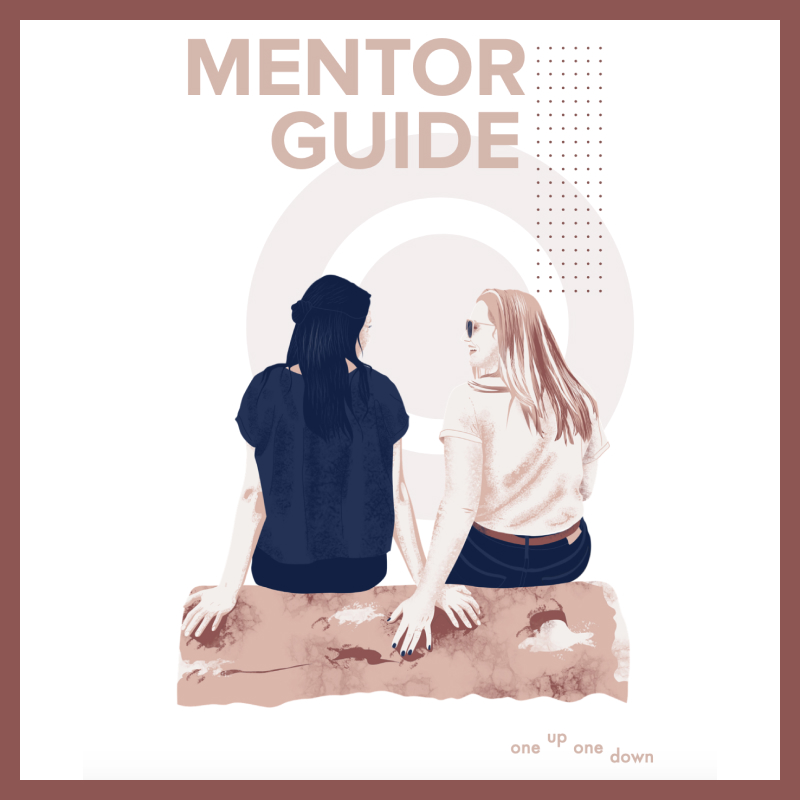Mentor Guide
THE ROLE OF A MENTOR
“To empower a mentee through a process of generating new experiences and action.”
Mentorship is a relationship designed to build a mentee’s confidence and support them to make decisions while taking control of their learning and development.
Mentoring differs from training, teaching and coaching. We believe a mentor doesn’t need to be an expert in their field or qualified to teach in a specific knowledge domain. They do however, need to be able to listen and ask insightful questions that challenge a mentee to identify the course of action they need to take in regards to their development. It’s then a mentor’s role to support the mentee to take these respective actions.
More than this, as a mentor, your role is not to solve a mentees problems by giving them the answers, it’s to be a helping hand and someone who provides support where you have strengths and a mentee has weaknesses.
How a mentor supports a mentee is based on the needs of the mentee and it is likely that mentor-mentee sessions will require some of the following:
- Asking questions to help develop an understanding of the mentee’s situation or problem
- Active listening to be able to connect with the mentee and share your most relevant experience and knowledge
- Sharing experiences, stories and insights to offer differing perspectives, and help the mentee learn from your successes and mistakes
- Providing support and encouragement to help the mentee feel more confident in their actions
- Sharing resources to support a mentee’s continued learning outside of your mentoring sessions
- Offering connections to networks where suitable
FIRST MENTORING SESSION
The purpose of your first mentoring session is to establish your mentor-mentee relationship with regards to direction and any expectations either you or your mentee have for the 3 month period. Part of having a great experience as a mentor and feeling as though you have successfully supported your mentee where they needed help, is getting clear on what needs to be achieved from the beginning.
Your first session is the time to get to know each other, work out the areas where you add the most value to your mentee, and agree how you’d like the relationship and future sessions to run. We recommend using this session to agree on the frequency of meetings, best communication method and/or platform, agreed topics of discussion and the scope of the relationship.
Here are a few questions you can ask your mentee to understand how to help them best:
- Tell me about yourself, what is your story?
- What made you decide to sign up through OneUpOneDown to receive a mentor?
- Is there any particular outcome you’d like from our mentor-mentee relationship?
- Have you had a mentor before? What worked well, what didn’t work so well?
- We’ve matched these tags, can you please tell me why you want to work in these areas?
- Are these areas (the tags) still primary priority for you? If not, what is the specific area you would like to focus on for the next 3 months?
- Are there any other challenges that you’re facing that I might be able to support you with, both personally and professionally?
- Are you comfortable discussing anything and everything (both personal and professional) or would you rather keep discussion to a particular area of expertise?
At this point (or any other point that seems suitable) you might like to share more about yourself and your own experience. This will build trust and show authenticity which often go hand in hand. Here are a few examples statements that you might like to try using:
- I have experience in [insert areas], through my work/personal experience [insert relevant experience]. I believe I can help you by……. does this sound good?
- Is there anything else that you think I can help you with?
- Do you prefer structure or spontaneity with your mentoring sessions?
- Would you like to come to each session with anything in particular – resources, relatable stories etc? Or are you happy to go with the flow as the sessions continue?
- Is there anything else you can share that will help me to be an effective mentor for you?
